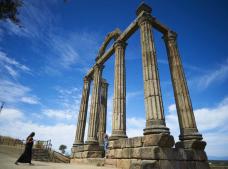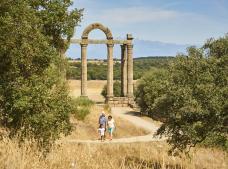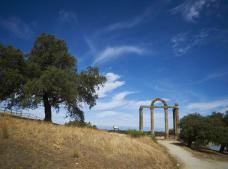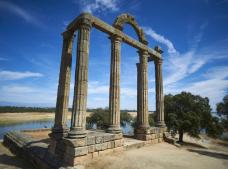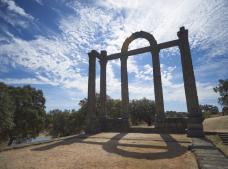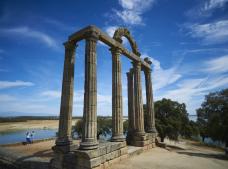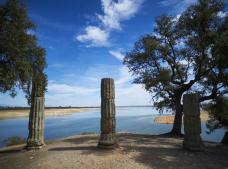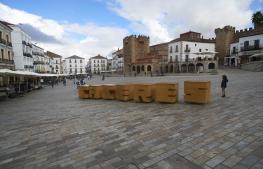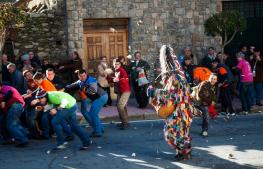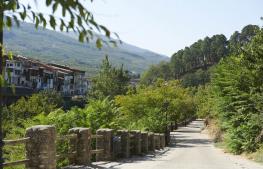Roman ruins of Augustóbriga
‘Los Mármoles’
Bohonal, in the north-east of the province of Cáceres, is home to the ruins of the ancient Roman city of Augustóbriga, buried below the town of Talavera la Vieja.
The area was flooded by water when the Valdecañas reservoir was built in 1960.
The city of Augustóbriga was established in the hollow the reservoir covers today, and corresponded to the Extremaduran town of Talavera la Vieja (also known as Talaverilla by locals), growing to 2,000 inhabitants before it disappeared.
The ruins of Augustóbriga include the temple and other historical references of what the city was like thanks to documents from Cornide and Hermosilla in the 18th century and, later, Mélida.
We know that walls protected and surrounded the city in Roman times. The centre was where the forum was located, surrounded by administrative and religious buildings.
The most prominent of the ruins are those of the temple known as ‘Los Mármoles’, dating from the 2nd century, which was dismantled stone by stone in order to rebuild it on an inlet above the maximum level of the reservoir water, 6.5 kilometres from the ancient settlement. Four front and two side columns form its portico or main façade on which the architrave, and, above it, there is a small rounded arch. The building is made of granite.
Together with the temple, there were also three column fragments from the so-called Temple of La Cilla.
The city had an aqueduct that was one metre tall, as well as a system of underground channels that distributed water from a reservoir. There are also remains of thermal baths and roads, the latter of which can be found near Alija Castle.
In 1931 Los Mármoles was declared an Asset of Cultural Interest in the Monument category.
Weather
Navalmoral de la Mata
6Dec

11 ºC
17 ºC
7Dec

6 ºC
16 ºC
8Dec

5 ºC
15 ºC
9Dec

4 ºC
17 ºC
10Dec

5 ºC
13 ºC
If you like Roman ruins of Augustóbriga you will like this too...
Monumental city of Cáceres
The topography plays an important role in the urban development of Cáceres, as the city stands on uneven ground, between the Sierra de la Mosca mou
Old Town of Cáceres
The decree declaring Cáceres as a Monumental Site was published on 21 January 1949, and in 1986 UNESCO included the Old Town of Cáceres in its list
Festivals of Tourist Interest
The province of Cáceres is home to one Festival of International Tourist Interest and two festivals declared as being of National Tourist Interest.
Cabezuela del Valle Historical Site
The municipality of Cabezuela del Valle is found in the central part of the Jerte Valley.

